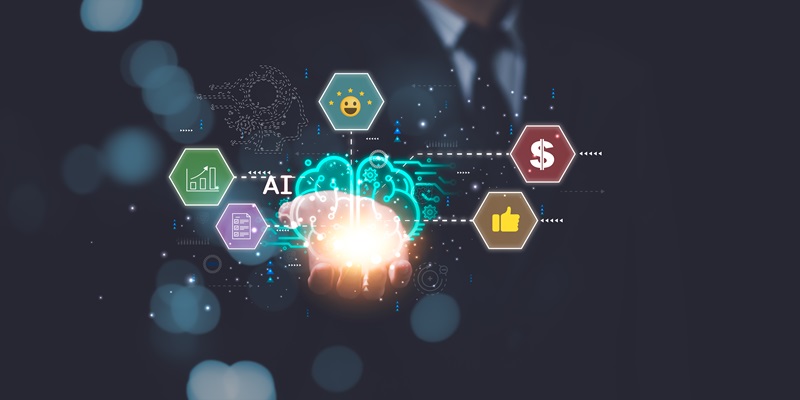In today’s digital age, artificial intelligence (AI) has revolutionized the way businesses understand consumer behavior and market trends. By analyzing vast amounts of data, AI has become a game-changer in helping businesses comprehend consumer preferences, habits, and purchasing patterns. This article delves into the role AI plays in forecasting market trends, creating personalized marketing campaigns, refining strategies in real-time, and automating content creation for better A/B testing.
Analyzing Consumer Preferences and Habits
AI’s ability to analyze massive datasets has empowered businesses to gain invaluable insights into consumer behavior. With AI algorithms, businesses can comprehend consumer preferences, habits, and purchasing patterns in ways never before possible. By utilizing AI tools and techniques, companies can uncover hidden patterns and trends, enabling them to make data-driven decisions that align with their target audience’s needs and desires.
Forecasting Market Trends
One of AI’s most significant contributions to marketing is its ability to forecast market trends. By processing large datasets, AI can identify patterns, correlations, and potential shifts in consumer behavior. This invaluable information helps businesses anticipate market demand and consumer needs, allowing for timely adjustments to their marketing strategies. With AI-powered trend forecasting, companies gain a competitive advantage by staying ahead of their rivals and improving their overall marketing effectiveness.
Creating Highly Targeted and Personalized Campaigns
Gone are the days of generic marketing campaigns. With AI, businesses have unlocked the ability to create highly targeted and personalized marketing campaigns. AI algorithms analyze consumer data to understand individual preferences, demographics, and behavioral patterns. This allows marketers to tailor their messages and offers to specific target segments, ensuring a higher degree of relevance and engagement. The result? Increased customer satisfaction, stronger brand loyalty, and improved conversion rates.
Real-Time Refinement of Marketing Strategies
The digital landscape evolves rapidly, and marketing strategies must adapt accordingly. AI provides a dynamic solution by refining marketing strategies in real-time. By continuously analyzing data and monitoring consumer interactions, AI algorithms can detect patterns, identify underperforming areas, and suggest improvements. This real-time refinement allows businesses to make agile decisions, ensuring the most effective approaches are being utilized at all times.
Building and Nurturing Relationships
Building and nurturing relationships with potential customers is fundamental to demand generation. AI can assist in this process by providing actionable insights into consumer behavior and preferences. By understanding customer needs and expectations, businesses can deliver personalized experiences that foster trust and loyalty. AI-powered tools also help automate communication, allowing businesses to stay engaged with customers throughout their journey, resulting in enhanced brand perception and increased repeat business.
Addressing Attention Span Challenges with Generative AI
In lengthy sales funnels, maintaining customer attention can be a challenge. However, generative AI is emerging as a valuable tool to address this issue. By leveraging deep learning techniques, generative AI can create personalized and engaging content at scale. From dynamic product recommendations to interactive visuals, generative AI ensures that every touchpoint within the sales funnel is captivating and relevant, boosting overall conversion rates and customer engagement.
Navigating Complex Buying Funnels with AI Analytics
Today’s buying funnels are increasingly complex, with multiple touchpoints and intricate analytics. Here, AI analytics come to the rescue. By crunching vast amounts of data, AI provides valuable context within reports and segments, helping businesses understand the effectiveness of each touchpoint and identify bottlenecks or areas for improvement. Through AI-powered analytics, marketers gain a comprehensive view of their customers’ journey, allowing for more precise targeting and optimization.
Advanced Analytics and Context with Generative AI
Generative AI takes analytics a step further by using its creativity to generate valuable context. By combining data-driven insights with creative output, generative AI provides advanced analytics reports that go beyond traditional data analysis. This enhanced context helps businesses gain actionable intelligence, driving informed decision-making and more effective marketing campaigns.
Automating Content Creation for A/B Testing
A/B testing is crucial for optimizing marketing strategies, but creating customised content for testing can be time-consuming. Enter generative AI, which automates the process of content creation for A/B testing. By understanding the preferences of target segments, generative AI can generate an array of personalised content options for businesses to test, enabling them to identify the most effective messaging, visuals, and offers for their audience.
Generative AI: An Augmentation Tool for Human Creativity
Despite AI’s prowess in marketing, it should be viewed as an augmentation tool that complements human creativity rather than replacing it. While AI can analyze vast amounts of data and generate insights at scale, it is human creativity that brings a unique perspective, emotion, and storytelling to marketing strategies. By harnessing the power of AI alongside human ingenuity, businesses can unlock the full potential of their marketing efforts.
Artificial intelligence has become an indispensable tool in marketing, enabling businesses to analyze consumer preferences, forecast market trends, refine strategies, and create highly targeted campaigns. By understanding the significance of nurturing relationships, leveraging generative AI for attention span challenges, and navigating complex buying funnels with AI analytics, businesses can unlock valuable insights and drive success in the dynamic digital landscape. By acknowledging AI as a complement to human creativity, organizations can harness the power of both for superior marketing outcomes.

